Business
EU calls for ‘time horizon’ on Sri Lanka import ban
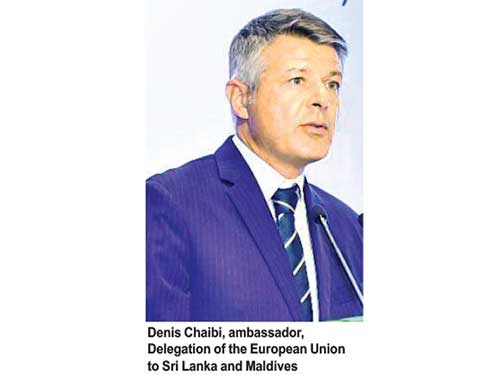
by Sanath Nanayakkare
Sri Lanka should give a ‘horizon’ to its businesses and potential investors as to until when the import ban will be in place, Denis Chaibi, ambassador/ Delegation of the European Union to Sri Lanka and Maldives said at the official launch of the Sri Lanka Trade Information Portal (SLTIP), held at Shangri La Colombo recently.
The 4-year EU funded project worth EUR 8 million supports local SMEs’ export competitiveness in regional and EU markets as well as value addition in sectors with high potential for economic growth and development.
Excerpts from ambassador Chaibi’s speech:
“This project is a good indication of our overall relationship which is characterised by engagement, respect and results. This project sends three powerful messages. The first one is about the importance of the EU market to Sri Lanka and vice versa. The EU is the second export market for Sri Lanka just after the US”.
“If you take the EU’s trade figures with Sri Lanka in 2019 and if you add services and the EU tourists who came to the island – hopefully who will return soon – you can see the importance of the EU”.
“Further the return of GSP in 2017 was a significant development that led to more than a quarter’s increase of exports from Sri Lanka to the EU. It’s not only the biggest market in terms of quantity. But it’s also an important market in terms of quality”.
“I have been in Sri Lanka a bit more than a year and the thing that strikes me every day is the quality of Sri Lankan products. If you compare the cinnamon, it’s the best in the world. Sri Lankan coconut is the best in the world. Jack fruit is the best in the world. Tea is the best in the world. Who appreciates the best in the world products more than Europeans? Who has the refinement that Sri Lanka has which is only found in civilizations. The Europeans are ready to pay a premium for all these products. Perhaps the South Americans will pay a bit more for Sri Lankan cinnamon, but at the end of the day those who buy the most refined Sri Lankan products are mostly Europeans. We are not only a quantitative market but a qualitative market with a huge potential for the future. The best way for Sri Lanka is to increase its product-quality, and quality is where Europe will be there as a very happy customer.”
“But we are a very demanding market. We have a lot of barriers and those have to do with qualitative standards. In the future, I can imagine that Sri Lankans will want to sell directly to Europeans through online websites. When Sri Lanka exports to Europe, it is ready to export to anywhere else in the world because the European standards are high. We are a demanding market but we are happy to be a good market for Sri Lanka because Sri Lankan products are the best.”
“My second message is that markets and trade is not a one-way street. We have full consideration for the public finances situation in Sri Lanka We fully understand the measures that have been introduced to safeguard public finances and especially the foreign exchange reserves of Sri Lanka.”
“But we need three things. We need recognition notification in the horizon. We need recognition that there is an import ban. And sometimes we are told that there is no import ban but just impediment for the banks to pay in foreign currencies, but these payments are linked to products, so we have to recognize that they are trade restrictions. And then on that recognition, we can quantify that to the WTO and work together in the international organisation that is precisely set up to deal with this kind of issues.”
“I think Sri Lanka would benefit tremendously from giving a horizon to its businesses and potential investors as to until when the measures will be in place so that people can prepare and also can invest in Sri Lanka.”
“That is important if we want to attract foreign direct investments to Sri Lanka. We need to have certainty and we need to be able to export [raw materials].Who would invest in Sri Lanka not knowing if he or she will be able to export because they know that the trade restrictions may attract some reaction. So, in order to attract foreign direct investments, we have to give a horizon on the trade restrictions. We say this in full respect of whatever the Sri Lankan government decides.”
“My third point is; if you look at this project of EU-Sri Lanka Trade Related Assistance, it is in full respect of the government’s priorities. We don’t have an agenda. We are not a military super power. We are a standards super power, and a lifestyle superpower. We live very well in Europe and we live very well for many reasons. But when it comes to aid and support what we do is follow the priorities of the government. Before we take policy decisions and priorities we always look at the manifesto. I was at the Sri Lanka National Day events and its manifesto specifically dealt with agriculture. Agriculture is the sector that we have favoured in our last budget cycle. So from 2014 to 2020, we have invested more than half of the EU aid in the development of rural Sri Lanka. We have spent almost EUR 100 million in that sector. This shows that we are following priorities of the government and that’s why we are supporting this project so that we in Europe can enjoy more of the best Sri Lankan products and Sri Lankan exporters can create more added value by collaborating with Europeans.”
Business
IMF staff team concludes visit to Sri Lanka
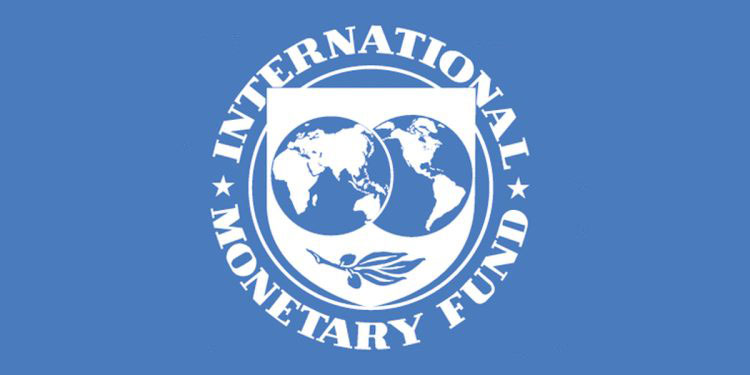
An International Monetary Fund (IMF) team led by Evan Papageorgiou visited Colombo from April 3 to 11, 2025. After constructive discussions in Colombo, Mr. Papageorgiou issued the following statement:
“Sri Lanka’s ambitious reform agenda supported by the IMF Extended Fund Facility (EFF) continues to deliver commendable outcomes. The post-crisis growth rebound of 5 percent in 2024 is impressive. Inflation declined considerably in recent quarters and has fallen to ‑2.6 percent at end-March 2025. Gross official reserves increased to US$6.5 billion at end-March 2025 with sizeable foreign exchange purchases by the central bank. Substantial fiscal reforms have strengthened public finances.
“The recent external shock and evolving developments are creating uncertainty for the Sri Lankan economy, which is still recovering from its own economic crisis. More time is needed to assess the impact of the global shock and how its implications for Sri Lanka can be addressed within the contours of its IMF-supported program.
“The government’s sustained commitment to program objectives is ensuring policy continuity and program implementation remains strong. Going forward, sustaining the reform momentum is critical to safeguard the hard-won gains of the program and put the economy on a path toward lasting macroeconomic stability and higher inclusive growth.
“Against increased global uncertainty, sustained revenue mobilization efforts and prudent budget execution in line with Budget 2025 are critical to preserve the limited fiscal space. Boosting tax compliance, including by reinstating an efficient and timely VAT refund mechanism, will help contribute to revenue gains without resorting to additional tax policy measures. Avoiding new tax exemptions will help reduce fiscal revenue leakages, corruption risks and build much needed fiscal buffers, including for social spending to support Sri Lanka’s most vulnerable. Restoring cost recovery in electricity pricing will help minimize fiscal risks arising from the electricity state-owned enterprise.
“The government has an important responsibility to protect the poor and vulnerable at this uncertain time. It is important to redouble efforts to improve targeting, adequacy, and coverage of social safety nets. Fiscal support needs to be well-targeted, time-bound, and within the existing budget envelope.
“While inflation remains low, continued monitoring is warranted to ensure sustained price stability and support macroeconomic stability. Against ongoing global uncertainty, it remains important to continue rebuilding external buffers through reserves accumulation.
“Discussions are ongoing, and the authorities are encouraged to continue to make progress on restoring cost-recovery electricity pricing, strengthening the tax exemptions framework, and other important structural reforms.
“The IMF team held meetings with His Excellency President and Finance Minister Anura Kumara Dissanayake, Honorable Prime Minister Dr. Harini Amarasuriya ; Honorable Labor Minister and Deputy Minister of Economic Development Prof. Anil Jayantha Fernando, Honorable Deputy Minister of Finance and Planning Dr. Harshana Suriyapperuma, Central Bank of Sri Lanka Governor Dr. P. Nandalal Weerasinghe, Secretary to the Treasury Mr. K M Mahinda Siriwardana, Senior Economic Advisor to the President Duminda Hulangamuwa, and other senior government and CBSL officials. The team also met with parliamentarians, representatives from the private sector, civil society organizations, and development partners.
“We would like to thank the authorities for the excellent collaboration during the mission. Discussions are continuing with the goal of reaching staff-level agreement in the near term to pave the way for the timely completion of the fourth review. We reaffirm our commitment to support Sri Lanka at this uncertain time.”
Business
ComBank unveils new Corporate Branch at Head Office
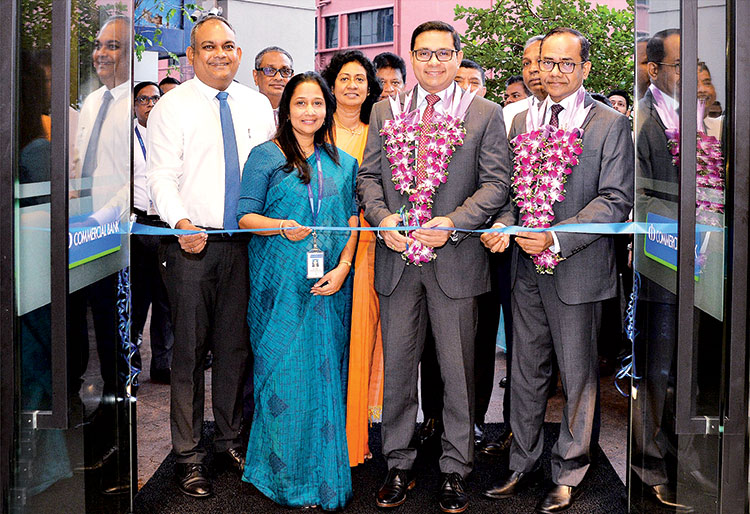
The Commercial Bank of Ceylon has transformed its iconic ‘Foreign Branch’ into the ‘Corporate Branch,’ reaffirming its commitment to delivering dedicated, comprehensive financial solutions to corporate and trade customers.
The Bank said this transformation represents a new milestone in its illustrious journey, and resonates with the rich commercial heritage of Colombo, a city that has long served as a vital trading hub in the region.
Strategically located at the Bank’s Head Office at Commercial House, 21, Sir Razeek Fareed Mawatha (Bristol Street), Colombo 1, this rebranded Corporate Branch stands as a first of its kind in Sri Lanka —a premier financial hub tailored exclusively to the needs of corporate customers, the Bank said. The transformation aligns with the Bank’s vision of providing unparalleled service excellence, bespoke financial solutions, and fostering long-term business partnerships.
Commenting on this strategic initiative, Commercial Bank’s Managing Director/CEO Sanath Manatunge stated: “It is our aspiration that just as the historic Delft Gateway, at which our Head Office is located, once opened the path to the Dutch Fort, our Corporate Branch will chart a new era of enduring and prosperous business collaborations, that will extend beyond Sri Lanka’s shores.”
Business
Fits Retail and Abans PLC Unveil Exclusive DeLonghi Premium Coffee Experience
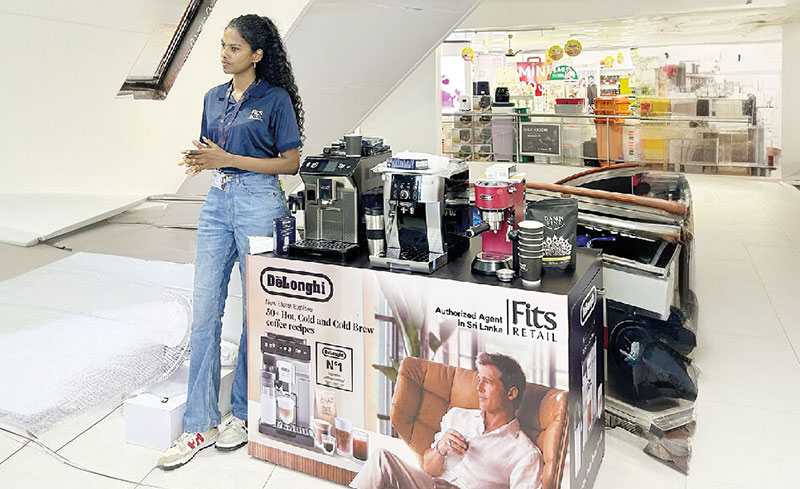
Fits Retail has partnered with retail giant Abans PLC to showcase the iconic DeLonghi coffee machines at two of Colombo’s most prestigious locations: Abans Elite Colombo 3 and Abans Havelock City Mall showrooms.
At these dedicated demonstration zones, visitors can discover the unparalleled precision engineering and user-friendly technology that have made DeLonghi machines the preferred choice for discerning coffee lovers in more than 46 countries worldwide. Renowned for consistently delivering café-quality espresso, cappuccino, and even specialty cold brews, DeLonghi machines exemplify Italian innovation at its finest.
Yasas Kodituwakku, CEO of Fits Retail, expressed excitement about the collaboration: “This partnership represents our unwavering commitment to bringing global coffee excellence to Sri Lankan connoisseurs. With Abans PLC, we’re creating more than just demonstration spaces; we’re curating premium destinations for an authentic coffee experience.”
“As pioneers of premium lifestyle experiences in Sri Lanka, our collaboration with Fits Retail aligns seamlessly with our vision of elevating everyday moments into exceptional experiences,” said Tanaz Pestonjee, Director Business Development at Abans PLC.
-

 News4 days ago
News4 days agoSuspect injured in police shooting hospitalised
-

 Features5 days ago
Features5 days agoRobbers and Wreckers
-

 Features7 days ago
Features7 days agoSri Lanka’s Foreign Policy amid Geopolitical Transformations: 1990-2024 – Part III
-

 Midweek Review7 days ago
Midweek Review7 days agoInequality is killing the Middle Class
-

 Business4 days ago
Business4 days agoSanjiv Hulugalle appointed CEO and General Manager of Cinnamon Life at City of Dreams Sri Lanka
-

 Business6 days ago
Business6 days agoNational Anti-Corruption Action Plan launched with focus on economic recovery
-

 Features3 days ago
Features3 days agoLiberation Day tariffs chaos could cause permanent damage to US economy, amid global tensions
-
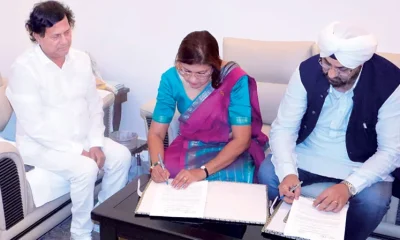
 News7 days ago
News7 days agoIChemC signs MoU with KIIT, India











